Understanding the CLASSICS Act
Wouldn't it Be Nice? God Only Knows...
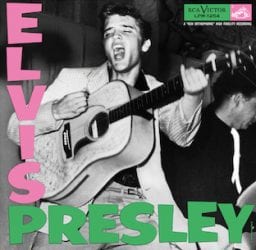 In August 2013 I wrote an article discussing the bizarre copyright status of pre-1972 sound recordings.
In August 2013 I wrote an article discussing the bizarre copyright status of pre-1972 sound recordings.
Currently, such recordings are not covered under federal copyright law. Instead, they’re protected under a mishmash of state law and common law that provides many similar protections.
However, as federal copyright law has moved forward since 1972, the differences and inconsistencies between pre-1972 sound recordings and all other works have grown. Laws that clearly applied to books, movies and modern sound recordings had unclear implications for many classic songs.
But, despite the obvious issues, Congress had been reluctant to address the issue of these sound recordings. Yesterday, that changed as Congressmen Jerrold Nadler (D-NY) and Darrell Issa (R-CA) introduced the CLASSICS Act.
The act, which stands for “Compensating Legacy Artists for their Songs, Service, and Important Contributions to Society Act“, aims to bring many elements of pre-1972 sound recordings under federal purview and create certainty in how pre-1972 works can be licensed and used.
While it’s not a full federalization of pre-1972 sound recordings, the bill still may go a long way in harmonizing the rights such songs enjoy with the rights of every other type of work.
Recapping the Problem
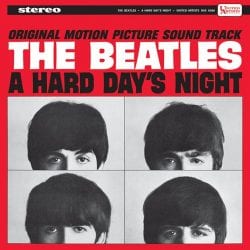 Though I went into more detail into pre-1972 sound recordings in my previous article, it’s worth a brief recap to see why the CLASSICS Act is necessary.
Though I went into more detail into pre-1972 sound recordings in my previous article, it’s worth a brief recap to see why the CLASSICS Act is necessary.
The issue of pre-1972 sound recordings goes back to the Copyright Act of 1909. Though the act had many key differences to the the Copyright Act of 1976, which took effect in 1978 and replaced the previous act, the biggest for our purposes dealt with what types of works were protected under copyright.
Before the Copyright Act of 1976, copyright didn’t automatically apply to new technologies. Congress had to amend the law to include new technologies as things were invented. Sound recordings, which were rare in 1909, were not included in the original act and, though they had become very popular by the 1970s, it was only the rise of cassette tape piracy that finally motivated Congress to act.
Congress passed the Sound Recording Amendment of 1971, which took effect on February 15, 1972. However, the act was not retroactive and only applied to new sound recordings created. Previous ones did not fall under federal purview.
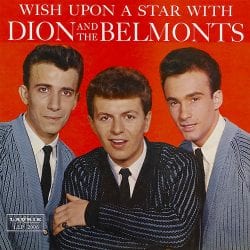 But those recordings did not lapse into the public domain. The Copyright Act of 1909 did not preclude state protections (which the Copyright Act of 1976 did). As such, pre-1972 sound recordings fell under the control of state law and common law, creating a somewhat chaotic system of enforcement.
But those recordings did not lapse into the public domain. The Copyright Act of 1909 did not preclude state protections (which the Copyright Act of 1976 did). As such, pre-1972 sound recordings fell under the control of state law and common law, creating a somewhat chaotic system of enforcement.
That chaos has only gotten worse in recent times. Many federal laws have been passed that have had an unclear impact on pre-1972 sound recordings. These have included laws requiring a license to digitally perform a sound recording and to provide safe harbor to web hosts when users upload infringing material.
The matter could even be made more confusing if the Fair Play Fair Pay Act becomes law (introduced by the same Congressmen), which would provide for a public performance royalty for music on terrestrial radio.
This conflict has resulted in lawsuits, such as The Turtles’ famous case against SiriusXM and Grooveshark’s fight over pre-1972 sound recordings with regards to the Digital Millennium Copyright Act.
It’s through the CLASSICS Act that Issa and Nadler hope eliminate much of the confusion, head off potential issues for the Fair Play Fair Pay Act and prevent future conflicts. But the way it does it isn’t through a full federalization of pre-1972 sound recordings, but rather, by bringing key areas under federal purview.
The Basics of the CLASSICS Act
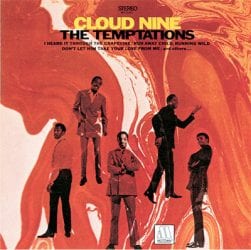 The CLASSICS Act stops short of being a full federalization of pre-1972 sound recordings. Instead, it seeks to address key areas of concern with such recordings.
The CLASSICS Act stops short of being a full federalization of pre-1972 sound recordings. Instead, it seeks to address key areas of concern with such recordings.
Those areas include:
- Digital Transmissions: The CLASSICS Act aims to bring pre-1972 sound recordings to parity with later recordings on the subject of digital transmissions. This means that unlicensed transmission would be against the law but the recordings would be subject to the same compulsory license regime that governs later recordings. This would streamline licensing such music and ensure equity in royalties.
- Safe Harbors: The CLASSICS Act also makes it clear that pre-1972 sound recordings are covered under the same safe harbors as other copyrighted works. This includes the Digital Millennium Copyright Act, which governs the notice and takedown regime, and section 230 of the Communications Decency Act.
Beyond those two areas, the law doesn’t make any changes to the current system, even going as far as to say:
Nothing in this section shall be construed to annul or limit any rights or remedies under the common law or statutes of any State for sound recordings fixed before February 15, 1972, except, notwithstanding section 301(c), the following:
What this means is that, while the bill would address the major issues facing pre-1972 sound recordings today, it won’t and can’t fully address any future ones.
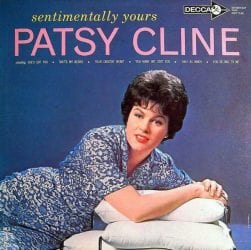 Still, on the issues it does address, it handles them capably, choosing to bring pre-1972 works to parity with other sound recordings. The act itself is fairly short, less than 2,000 words, and limits itself to just the areas above.
Still, on the issues it does address, it handles them capably, choosing to bring pre-1972 works to parity with other sound recordings. The act itself is fairly short, less than 2,000 words, and limits itself to just the areas above.
So, while it’s not a full federalization of pre-1972 sound recordings, it addresses the major issues they face today and should help bring some much-needed clarity to these works.
The act also addresses some of the concerns that others have had about federalization. It doesn’t alter the date such sound recordings fall into the public domain, February 15, 2067, and ensuring that other rights and privileges that such recordings enjoy remain unaffected.
However, there is one area where the law is unclear and it’s a challenge that has derailed other attempts to addressing pre-1972 recordings.
The Registration Question
Currently in the United States, if you wish to sue for copyright infringement, you need to register your work with the U.S. Copyright Office. Furthermore, timely registration is necessary to receive statutory damages or attorneys fees, without which many copyright lawsuits are impractical.
However, since pre-1972 sound recordings were never protected under federal law, they were almost never registered. There was no reason.
With the CLASSICS Act moving digital audio transmission of such works under federal purview. The question becomes: Is a registration necessary to file a lawsuit for infringement?
After speaking to several others on this the answer is unclear. The act doesn’t mention registration in any way.
The act, however, appears to indicate that registration would not be necessary. The first paragraph states the following:
Anyone who, prior to February 15, 2067, performs publicly by means of digital audio transmission a sound recording fixed before February 15, 1972, without the consent of the rights owner, shall be subject to the remedies provided in sections 502 through 505 to the same extent as an infringer of copyright.
The last line (and others like it throughout the act) seem to indicate that the act is creating a new set of penalties that carry the same weight as copyright infringement, but aren’t copyright infringement itself. This would mean a lawsuit under this act would not technically be a copyright lawsuit, meaning no registration would be required.
However, it’s unclear if this is the intent of the law and I’ve written both Issa and Nadler to try and get clarification. I’ll update this article when and if they respond.
Bottom Line
To be clear, this act isn’t perfect. It’s not future proof and it’s unclear on a pretty significant issue. However, it’s still a solid attempt to bring some sanity to pre-1972 sound recordings.
While this act has a very long way to go before it becomes a law, especially in the current legislative atmosphere, the big ideas are simple and sound. Having pre-1972 sound recordings be treated as a special class of copyrighted works has caused many problems and this act attempts to address a few of the key ones.
If this act doesn’t make it into law, I’m hoping that its ideas do. The time for action on pre-1972 sound recordings is long overdue and this is, at the very least, a solid first step.
Want to Reuse or Republish this Content?
If you want to feature this article in your site, classroom or elsewhere, just let us know! We usually grant permission within 24 hours.
